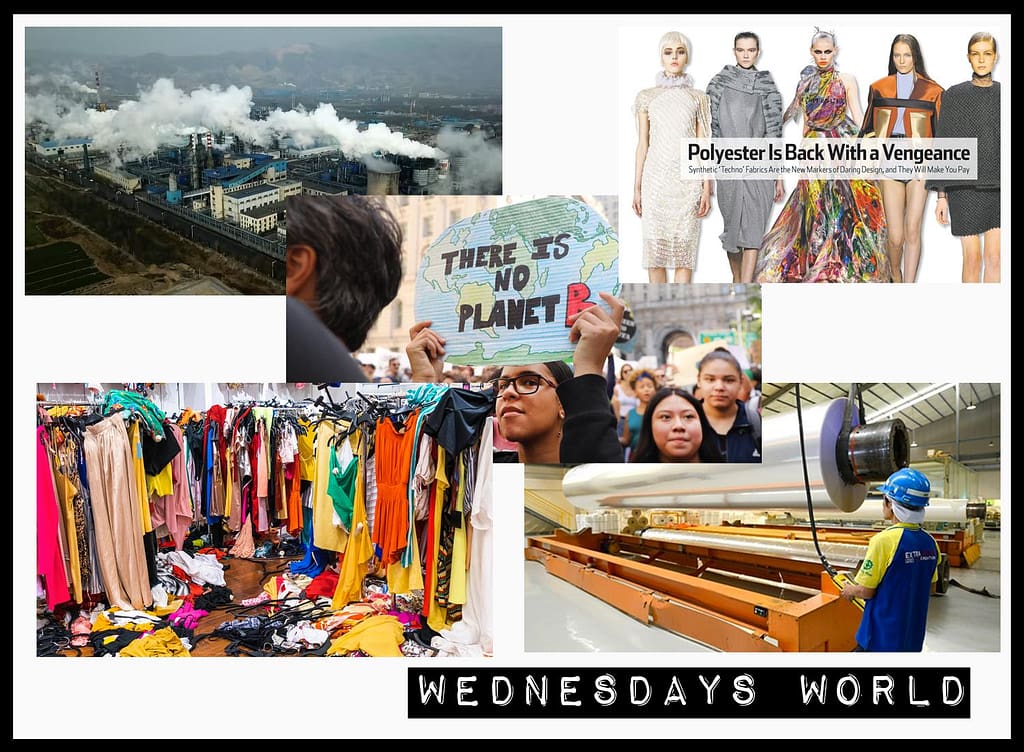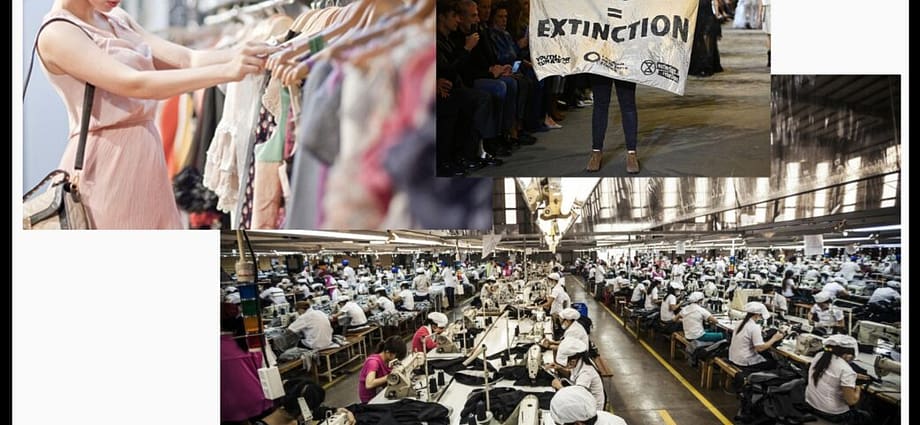In today’s world, where we are becoming increasingly conscious of our purchasing decisions, it is imperative that we consider the impact of our choices, particularly in the realm of fast fashion.
The fashion industry has long been associated with excessive waste and environmental degradation, but now, more than ever, we need to prioritize sustainable practices and materials. By embracing quality, durability, and eco-friendly production methods, we can slow down the cycle of fashion waste and reduce our reliance on fossil fuels.
The Impact of Fast Fashion
Fast fashion has emerged as one of the primary culprits behind the throwaway culture in the fashion industry. The relentless production and consumption of cheaply made clothing has led to an alarming increase in clothing waste.
Each discarded garment ends up in landfills, contributing to the growing piles of non-biodegradable waste. Rubbish that is not reused, but instead burnt. Equally meaning that all the carbon that is used when making the clothes is then burnt and released back into the atmosphere

Equally, over the past decade, we have gradually developed the habit of buying more clothing than we need. This has then resulted in more clothes being thrown away. According to Modher, “In 2015 alone, polyester production for textiles created more than 700 million tonnes of carbon dioxide emissions.” Yet this information fly’s under the radar.
Who is accountable?
Production Companies have the power to make the biggest impact
While consumers play a significant role in the fashion industry, it is the production companies that hold the power to make the most substantial impact.
As long as these companies continue to manufacture clothing using micro-plastic fabrics like polyester, clothing brands will continue to invest in them due to their affordability and durability. This perpetuates the overproduction of clothing, leading to a vicious cycle of consumption and waste.
To truly address the issue, production companies, including designers, must find innovative and eco-friendly ways to produce clothing. Some forward-thinking clothing brands have already embarked on this journey of change, but the plastic industry remains resistant due to the potential financial losses
Consumers
Although production companies bear a significant responsibility, consumers can also make a substantial difference. However, the lack of information about the production process poses a challenge. If consumers were more informed about the environmental and social impacts of their clothing choices, they would have the power to drive change.

Fortunately, the rise of the internet and social media has led to an abundance of information that is readily accessible. As responsible consumers, we must carefully scrutinize the origins of the products we purchase. It is not enough to know where our clothes come from; we must also consider the unhealthy consumer habits that have been cultivated through mass marketing and product placement.
Companies have understood the psychology of what can entice us to buy above our means. Causing the development of bad cycles of earn and spend until the next Pay-check and then we do it all again.
By breaking free from these cycles of overconsumption, we can make a positive impact on the environment and our bank accounts!
Should Consumers BE THE ONES TO Make Changes to Help Fossil Fuels?
While the reduction of fossil fuels is undoubtedly a significant challenge, it is not solely the responsibility of consumers to tackle this issue.
Instead, we should focus on introspection and finding meaning in our individual realities. By aligning our values with our purchasing decisions, we can make a difference. Find what it means to follow your individual wants and needs rather than follow fashion
It is crucial to consider the ethical implications of our clothing choices.
Are our clothes manufactured in factories that exploit workers or expose them to hazardous conditions?
Do they contain harmful chemicals that pose a risk to our bodies and the environment?
By collectively making changes to our lifestyles, we can effect change on a global scale and contribute to a more sustainable future
We will ultimately help the planet if we help ourselves first!
The role of the Government
While consumers and production companies play vital roles, it is ultimately the responsibility of governments to address the root causes of the fast fashion and fossil fuel problem.
If governments acknowledge the need to curb the overuse of plastic and reduce carbon emissions, they should take decisive action against the companies responsible for producing these products. By implementing policies and regulations that promote sustainable practices and hold corporations accountable, governments can drive meaningful change.
As individuals, we can support these efforts by being mindful of the companies we support and
BUT as individuals we must still make changes within ourselves by being more mindful where we spend and companies we support. To understand the impact of the environmental toxins we are exposed to.
Together We Are One
The fashion industry stands at a critical juncture, where the choices we make today will shape the future of our planet. The impact of fast fashion and fossil fuels cannot be ignored, and it is imperative that we shift accountability to create a sustainable future.
Production companies must lead the way by embracing eco-friendly practices and materials, while consumers need to be empowered through information and conscious decision-making.
Governments must also play their part by implementing policies that drive change and hold corporations accountable.
By coming together and taking collective action, we can create a world where fashion and sustainability go hand in hand.
Remember, the power to make a difference lies in our hands. Let us embrace this responsibility and work towards a future where fashion is not only beautiful, but also sustainable.
Slow Fashion, Fast Fashion, Fashion and Sustainability

